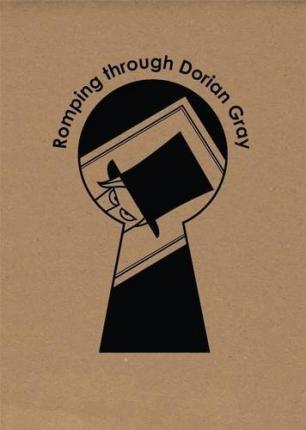Joyce on Wilde
I’m all about James Joyce today, since it is my great honour to have been asked by At It Again to say a few words at the launch of their delightful little manual Romping Through Dubliners in The James Joyce Centre on North Great Georges Street, Dublin 1.

Yet, I can’t let this opportunity pass without mentioning Joyce’s commentary on his compatriot Oscar Wilde. In March 1909, a production of the opera Salome by Richard Strauss, which was based on Wilde’s play of the same name, opened at the Teatro Verdi in Trieste, where Joyce was living at the time. To coincide with this event, ‘Oscar Wilde: il poeta di “Salomé”’ [Oscar Wilde: The Poet of Salome]*, Joyce’s lengthy analysis of Wilde’s life, was published in Il Piccolo della Sera on 24 March 1909.
Joyce opened by analysing Wilde’s elaborate name – ‘Oscar Fingal O’Flahertie Wills Wilde’ – and commenting on its appropriateness, since the original Oscar, son of Ossian in Celtic mythology, had been ‘treacherously killed by the hand of his host as he sat at table’. Wilde too, Joyce believed, met his death ‘in the flower of his years as he sat at table, crowned with false vine leaves and discussing Plato’.
While he acknowledged the considerable influence that Jane Wilde exerted over her younger son, Joyce did not believe this worked to his advantage. He wrote:
‘His mother’s susceptible temperament revived in the young man, and, beginning with himself, he resolved to put into practice a theory of beauty that was partly original and partly derived from the books of Pater and Ruskin. He provoked the jeers of the public by proclaiming and practising a reform in dress and in the appearance of the home.’
While acknowledging the success Wilde enjoyed with his sharp social comedies, Joyce is damning in his assessment of the position of the Irish comedic playwright in English society, writing:
‘In the tradition of the Irish writers of comedy that runs from the days of Sheridan and Goldsmith to Bernard Shaw, Wilde became, like them, court jester to the English.’
Joyce believed, with good reason, that Wilde frittered his new-found wealth away on ‘a series of unworthy friends’. Since his popularity was superficial and unsustainable, as soon as he fell from favour, ‘[h]is fall was greeted by a howl of puritanical joy’.
Not one to miss an opportunity to have a pop at the faith of his youth, Joyce, who had been devout in his early years but had turned his back on religion, took the opportunity to castigate Wilde for his late conversion:
He died a Roman Catholic, adding another facet to his public life by the repudiation of his wild doctrine. After having mocked the idols of the market place, he bent his knees, sad and repentant that he had once been the singer of the divinity of joy, and closed the book of his spirit’s rebellion with an act of spiritual dedication.
Ultimately, he saw Wilde as a victim of a system that tolerated him only as long as he posed no real threat.
‘Whether he was innocent or guilty of the charges brought against him, he undoubtedly was a scapegoat. His greater crime was that he had caused a scandal in England, and it is well known that the English authorities did everything possible to persuade him to flee before they issued an order for his arrest. An employee of the Ministry of Internal Affairs stated during the trial that, in London alone, there are more than 20,000 persons under police surveillance, but they remain footloose until they provoke a scandal.’
In the end, Joyce believed that the turn of Wilde’s life was
‘the logical and inescapable product of the Anglo-Saxon college and university system, with its secrecy and restrictions’.
And he mourned the fact that Wilde’s literary reputation had been destroyed:
‘his brilliant books sparkling with epigrams (which made him, in the view of some people, the most penetrating speaker of the past century), these are now divided booty’.
Today we have reclaimed Wilde’s work and his reputation, and we celebrate his brilliance in myriad ways. One fitting example of the revival of our brilliant Oscar is to be found in Romping Through Dorian Gray, At It Again’s witty and interactive companion to his lush novel The Picture of Dorian Gray. In it, we are urged to ‘yield to temptation’, an activity that Oscar embraced wholeheartedly.

*The translation of ‘Oscar Wilde: il poeta di “Salomé”’ comes from The critical writings of James Joyce





